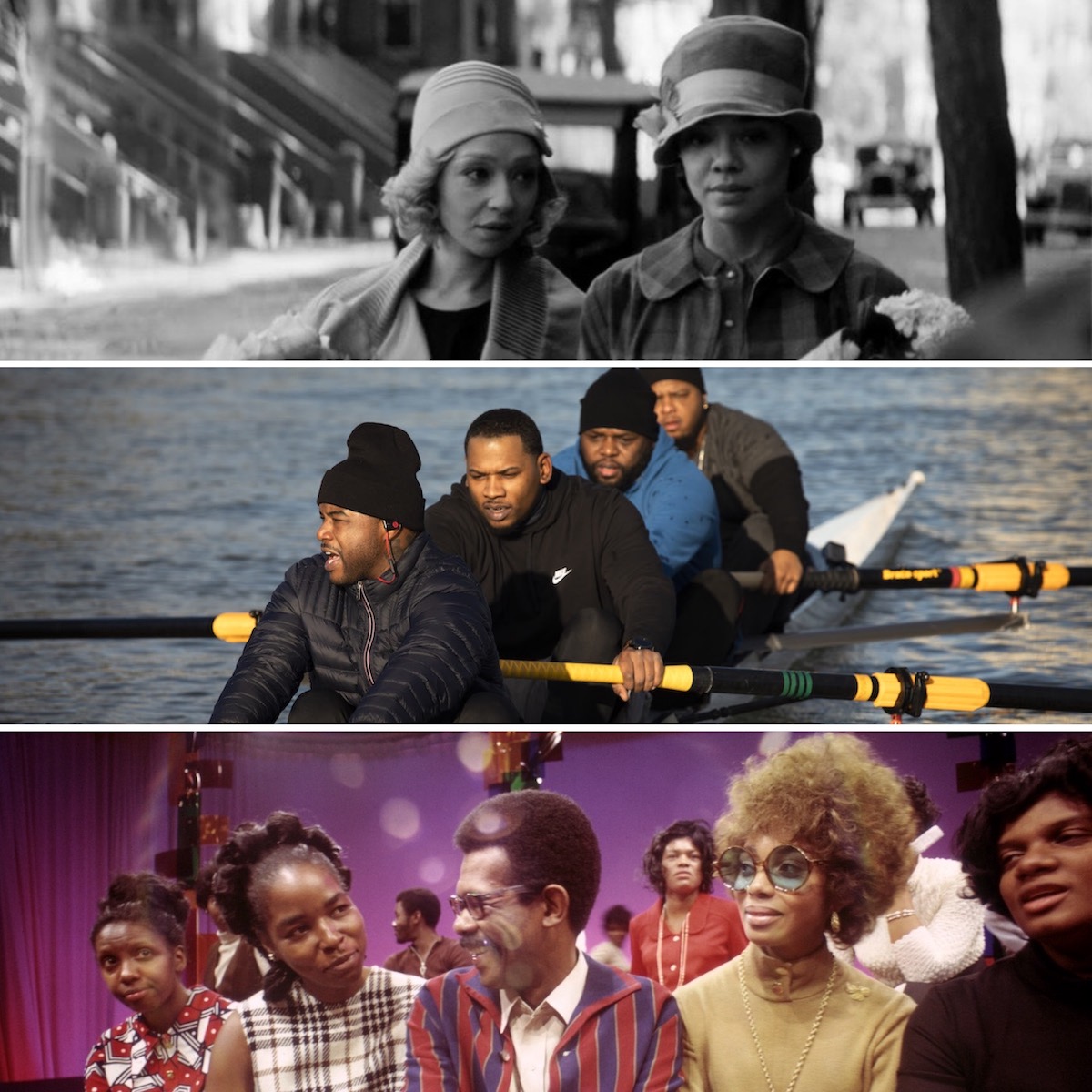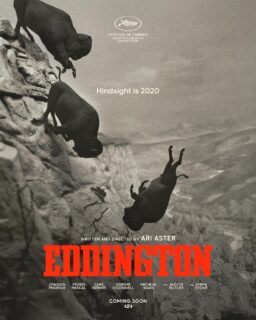For Black History Month, I would like to recommend three excellent recent films I have executive produced: “Passing,” “A Most Beautiful Thing,” and “Mr. Soul!”. I deeply believe in each film and I think they each in their own way illustrate the importance of this annual observance of African-American culture and history. One of them premiered at this year’s Sundance Film Festival: “Passing,” an adaptation of Nella Larsen’s revelatory 1929 novel that marks the debut of acclaimed actress Rebecca Hall (“Vicky Cristina Barcelona“) as a writer/director. The film stars Oscar-nominee Ruth Negga (“Loving”) and Tessa Thompson (“Dear White People“) as two African-American high school friends who reenter one another’s lives as adults but who by then are living on opposite sides of the color line. Negga’s character is passing as white but has a racist husband (Alexander Skaarsgard), who has no idea of the secret she is hiding. Thompson’s character chooses to live as Black, and her rich social and family life in Harlem draws her friend back like a moth to a flame.
Rebecca Hall, whose own family hid a racially mixed heritage (her mother is American opera singer Maria Ewing), shot this film (with cinematographer Eduard Grau) in sumptuous black and white and a 4:3 aspect ratio to maximize the period look and feel. Serving as the the film’s producer is Nina Yang Bongiovi, who formed Significant Productions with Oscar-winner Forest Whitaker. Together they have produced other Sundance hits such as “Fruitvale Station,” “Dope,” “Sorry to Bother You” and Chloé Zhao’s first film, “Songs My Brother Taught Me.” “I hope with a film like ‘Passing,’ filmmakers and creatives are inspired and emboldened to push the boundaries in narratives that don’t confine us,” said Bongiovi. “Great storytelling transcends globally.”
Bongiovi’s conviction has been further proven by the praise that “Passing” has received since its premiere. “In her gorgeously shot emotional gut-punch of a feature directorial debut, actress Rebecca Hall announces herself as a true force behind the camera and gifts stars Tessa Thompson and Ruth Negga with roles worthy of their formidable talents,” wrote Geoff Berkshire in The Los Angeles Times. “Hall’s adaptation of the 1929 novel by Nella Larsen begins as an exploration of biracial people passing for white in the ‘20s and effortlessly expands to explore the nuances of class, gender and sexuality that overshadow an uneasy friendship.” Our site’s Managing Editor Brian Tallerico wrote that the film is “a subtle and nuanced examination of racial boundaries and definitions, amplified by issues of sexuality that would have been equally daring at the time this book was published. […] It’s a conversation piece in every way, and those are always the films that matter most.” Netflix is currently in talks to acquire “Passing” in a near $16 million deal.
In 2020, I executive produced two timely documentaries, the first of which was Mary Mazzio‘s “A Most Beautiful Thing.” It tells the story of young men, some who were former gang rivals from the West Side of Chicago, who grudgingly got together to form a sports team that had never been formed before, a Black rowing team. Incredibly, it also shows these same former gang members teaching members of the Chicago Police Department how to row in partnership with them. The film has become even more topical in light of the social unrest around the relationship between the police and Black communities. But that’s only part of the story. They reached out to an Olympic rowing coach for lessons when they put the team back together years later. One of the most beautiful parts of the film is watching the men utilize all of their life lessons to inspire intergenerational hope for their children.
Director Mary Mazzio found support among lawmakers in Congress where she proposed that poverty should be treated as a health crisis and that systemic racism can be addressed at its roots by redressing structural inequities. “A Most Beautiful Thing” is a film about the ups and downs of life in the city. About the hopes and dreams of its inhabitants. About addiction and recovery, about family and community. And about a brighter path being forged from sheer hard work and discipline. In his SXSW review of the film, RogerEbert.com managing editor Brian Tallerico wrote, “Mazzio’s approach reminded me of Steve James, another filmmaker whose undeniable empathy comes through in every frame.” Among its numerous honors, the film was nominated for for a Critics’ Choice Award, an NAACP Image Award and for Best Documentary by the Foreign Press Academy. It currently has a 100% approval rating with both critics and audiences on Rotten Tomatoes.
<span id=”selection-marker-1″ class=”redactor-selection-marker”></span>
Last but certainly not least is Melissa Haizlip‘s “Mr. Soul!,” an illuminating look at “SOUL!”, the public television variety show produced and hosted by the director’s uncle, Ellis Haizlip, that turned a spotlight on the Black Arts Movement. During a time period when African-Americans were not routinely featured prominently on television except in negative stereotypes, this program blazed new trails for representation during its run from 1968 through 1973. In his four-star review of the film published on this site, our critic Glenn Kenny wrote that “the clips from the show—and seriously, can someone assemble the entire series and get it on streaming, or physical media somehow—reveal it as a phantasmagoria of Black excellence.”
The film’s director, Melissa Haizlip, is a dynamic emerging filmmaker who has earned much praise for her film, including the Critics’ Choice Award for Best First Documentary Feature, Best Music Documentary at the IDA Documentary Awards, the Best Feature Documentary at the Pan African Film & Arts Festival, the Audience Award for Best Feature at the AFI DOCS Film Festival in Washington, D.C., the Audience Award at the Martha’s Vineyard African American Film Festival, the Meta Award at the Dallas Videofest/Docufest and made a splash at the BFI London Film Festival and the Tribeca Film Festival.
I am recommending these films not because of my role as executive producer but because they are quite simply good. Only in one of the films, “Passing,” do I hold an equity participation position. All of the documentaries I supported stemmed from my desire to bring light to topics of social justice that may help change the world for the better. Or they exhibited principles such as equality, empathy, kindness, compassion or forgiveness. I had no financial interest in them. My late husband’s passion was film criticism. I am discovering that my passion is in telling stories that resonate so deeply with me that I want to share them. To avoid any conflict of interest, I will always disclose my participation, whether financial or otherwise, in the projects. And as I step into this new frontier, equity participation, that disclosure will be even clearer.












